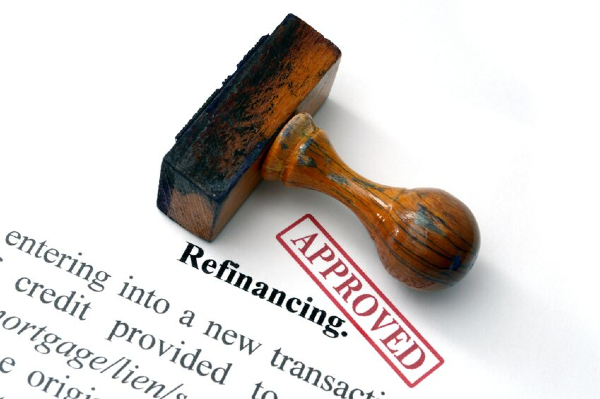In Malaysia, most homebuyers can fulfil their home ownership dreams with the help of a mortgage from the bank. A mortgage is applied for from a bank or financial institution to help pay for the property.
Typically, the down payment of a new property is 10% of the property’s purchase price, and the remaining 90% is covered by the mortgage, which is repaid in monthly instalments.
However, if you’re purchasing a third property or more, bear in mind that the maximum mortgage you can apply for is only 70%.
Bank Negara Malaysia’s 70% Mortgage Policy
When it comes to loans, one thing to pay attention to is the loan-to-value ratio (LTV). This is the ratio of the amount that banks will be willing to lend to you.
E.g. If a property is valued at RM1 million and the bank provides a 90% mortgage loan which amounts to RM900,000, the buyer will need to prepare the remaining 10% of the amount (RM100,000) as a down payment.
Before 2010, no matter how many mortgages you applied for, the bank would provide at least a 90% mortgage loan.
However, since then, Bank Negara Malaysia (BNM) introduced a house buying policy, limiting the LTV of third residential mortgage loans to 70% to curb real estate speculation in Malaysia’s property market.
Under this policy, if the buyer already has two unpaid mortgages in their name, the percentage of their third mortgage can only be up to 70%. Hence, buyers would need to fork out more when making a down payment for their third home.
|
Housing Loan Applied For By Buyers
|
The Highest Mortgage Rates (LTV) That Can Be Applied
|
|
First mortgage
|
90%
|
|
Second mortgage
|
80%
|
|
Third mortgage and above
|
70%
|
In addition, since 2013, BNM stipulated that the limit of the third mortgage will no longer be calculated based on the gross selling price of the property, but on the net selling price instead (excluding rebates and discounts).
In other words, buyers can borrow a much lesser amount, which would increase the cost of buying their third home (and any other after that). Here’s a rough example:
Net selling price: RM450,000
Highest loan ratio (LTV): 70%
Mortgage available to borrow: RM315,000
Here Are 5 Ways You Can Try To Get A 90% Mortgage
Based on the examples above, the 70% LTV limit would force many to bear a high down payment cost when purchasing their third home, fourth home, and so on.
For real estate investors who want to own many homes, this is undoubtedly a heavy burden to bear. Which begs the question: Is there any way to break the 70% mortgage limit in Malaysia?
Luckily enough, yes, there are! Here are several ways investors can try to obtain a loan ratio higher than the 70%.
1) Home Ownership Campaign (HOC) discounts*
*HOC has ended on 31 December 2021.
When purchasing a third property and above during the Home Ownership Campaign (HOC) period, as long as the property is worth RM600,000 and above, the mortgage rate will no longer be limited to 70%. Instead, the bank will use its internal risk structure to evaluate the loan amount.
In other words, as long as the buyer has good credit records such as CCRIS and CTOS, as well as can prove that they have sufficient financial capacity, they will have a higher chance of getting a mortgage rate above 70%.
Buyers who participate in the HOC also enjoy other benefits, such as at least a 10% discount on the house price, free stamp duty for transfer of property, and free stamp duty for the mortgage.
According to data from the Real Estate and Housing Developers’ Association Malaysia (REHDA), a total of 73,503 homes were sold throughout 16 months from 1st June 2020 till the end of September 2021.
The HOC has ended on 31st December 2021, but good news! The Malaysian government announced that Penang will see an extension of the HOC until 30th June 2022, making it the perfect opportunity for investors to buy a home for themselves.
2) Consider purchasing commercial real estate
Given that the 70% mortgage limit only applies to residential properties, buyers can consider changing their investment goals and purchasing commercial properties that are not affected by this policy.
Fortunately, commercial real estate has become quite diverse, with many types of properties serving both residential and commercial purposes, such as serviced apartments, SoHos, SoFos, and SoVos.
Purchasing a commercial property means applying for a commercial real estate loan, a similar procedure to that of a residential loan. The eligible mortgage to be borrowed can be up to 80%-85%.
Although it is not possible to borrow up to 90% like a residential property, the 80%-85% mortgage ratio is much higher than 70%, thereby reducing the financial pressure of the down payment.
Down payment
First two residential properties: 10%
Third residential property and above: 30%
Commercial real estate: 15%-20%
3) Apply for loans from other financial institutions
Most homebuyers would typically choose mainstream banks like Maybank, CIMB, Public Bank, or RHB when applying for a housing loan. Very rarely are other financial and lending institutions considered.
In addition to those banks, many legal and reliable institutions in Malaysia allow homebuyers to apply for mortgages too.
3a) Islamic banks
An Islamic bank is a type of bank based on Syariah law. MBSB, Bank Islam, and Bank Muamalat are the larger and more well-known Islamic banks in Malaysia.
If the borrower meets the requirements, even if it’s for a third mortgage, there’s a good chance they’ll be able to get more than 70% for their mortgage loan. It’s worth a shot if you want to secure your dream home!
3b) Insurance companies
That’s right, certain insurance companies provide mortgage services too! These companies are approved by Bank Negara Malaysia to do so, and AIA is one such example.
Insurance companies may not have the same standards as banks when it comes to approving mortgages, so for homebuyers, this may be a better chance to obtain a higher loan ratio.
3c) Suruhanjaya Koperasi Malaysia (SKM)
The Co-Operatives Society is an organisation registered under the Suruhanjaya Koperasi Malaysia (SKM), that aims to provide mortgage assistance to members in the spirit of mutual assistance and cooperation.
According to the SKM official website, cooperatives can provide loans to their members such as Bank Kerjasama Rakyat Malaysia Berhad and Co-Op Bank Persatuan Malaysia Berhad.
One of the purposes of these cooperatives is to help their members. Therefore, it may be easier to obtain a mortgage and a higher loan ratio compared to banks.
3d) Legal financial companies
These financial institutions are licensed by the Ministry of Housing and Local Government (KPKT) to provide the public with mortgage services, such as housing loans, private loans, and commercial loans.
Although some of these legal financial companies are more lenient in lending than banks, their interest rates are usually quite high, ranging from 8%-12% per year compared to bank interest rates of 3%-4%.
4) Refinance your mortgage
If you can’t apply for a 90% mortgage for your third loan, you may want to consider refinancing your existing loans to integrate them. That way, you will no longer be subject to BNM’s restrictive 70% mortgage loan.
For e.g. X has two properties with loans still being serviced, with plans to buy a third home. X can combine their two mortgages into one through refinancing, or refinance one of their mortgages to be transferred to another person.
In doing so, when purchasing their third home, they would be able to obtain a 90% mortgage loan successfully!
5) Purchase a home under someone else’s name
As the name implies, purchasing a home under another person’s name means "borrowing" their name to buy a home.
The key takeaway here is to find a partner who can still get a 90% mortgage loan, then protect it through legal documents to achieve a win-win situation for all.
For e.g. N is an investor who owns two properties. If they want to purchase a third property, they won’t be able to get a 90% mortgage loan from the bank.
Now, M is a novice investor who wants to invest in real estate but does not have any experience or mortgages under their name.
In this situation, N and M can cooperate to apply for a mortgage in the name of M. Afterwards, N will be responsible for managing the investment affairs of the property, such as renting, and the two will share the profits as pre-arranged.
However, the biggest risk of buying a home in M’s name is that N’s name will not appear in the Sale and Purchase Agreement (SPA).
To protect both, they can sign a Trust Deed with a Power of Attorney to ensure the ownership and management rights of the property are under N’s name.
PropertyGuru Tip
What is a Trust Deed? A trust deed document lists the buyer and the nominal buyer of the property, along with the distribution and arrangement of the property shared by both parties (the percentage of property ownership, the obligation to repay the loan, and any other financial responsibilities related to the property).
What is a Power of Attorney? In this power of attorney document, the nominal buyer will authorise the buyer with certain powers so that the other party can deal with the related affairs of the property, including signing the Tenancy Agreement and the Sale and Purchase Agreement to rent and sell the property.
Purchasing a home is never an easy task, but hopefully, these tips will be able to provide some insight on securing a better mortgage loan for your third home!
Relevant Guides:
Disclaimer: The information is provided for general information only. PropertyGuru International (Malaysia) Sdn Bhd makes no representations or warranties in relation to the information, including but not limited to any representation or warranty as to the fitness for any particular purpose of the information to the fullest extent permitted by law. While every effort has been made to ensure that the information provided in this article is accurate, reliable, and complete as of the time of writing, the information provided in this article should not be relied upon to make any financial, investment, real estate or legal decisions. Additionally, the information should not substitute advice from a trained professional who can take into account your personal facts and circumstances, and we accept no liability if you use the information to form decisions.









